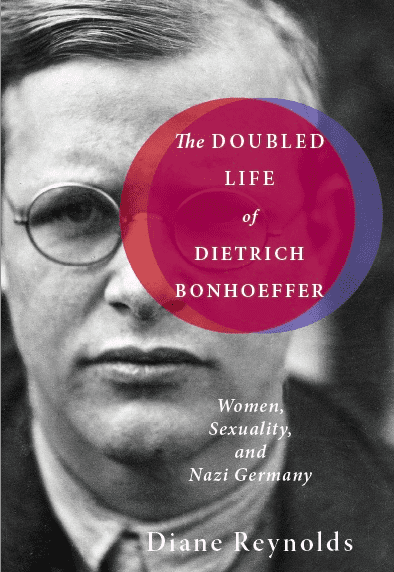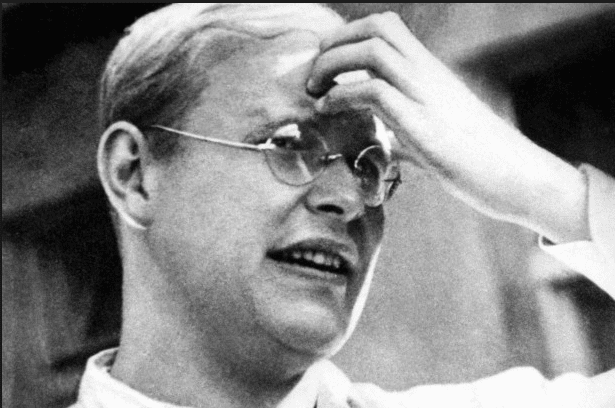 What happens to church ministry when we turn from the “phraseological” to the “real”? The terms need fleshing out. The phraseological is theology as words, ministry as didactic and indoctrinating, the congregation/members/Christians as empty minds in need mostly of filling or the congregation in need of becoming passive before the fountain of pastoral wisdom. The “real,” on the other hand, recognizes that theology is not genuine gospel unless it is tied into and expressed in reality or life as we live it.
What happens to church ministry when we turn from the “phraseological” to the “real”? The terms need fleshing out. The phraseological is theology as words, ministry as didactic and indoctrinating, the congregation/members/Christians as empty minds in need mostly of filling or the congregation in need of becoming passive before the fountain of pastoral wisdom. The “real,” on the other hand, recognizes that theology is not genuine gospel unless it is tied into and expressed in reality or life as we live it.
What happens to ministry, then, when we turn the pastor from the giver and the audience as receivers into the pastor as a kind of mentor or guide for the congregation to discover God at work in their life as they really live it? This is the question Andrew Root thinks is at the heart of Bonhoeffer’s own ministry to youth (Bonhoeffer as Youth Worker).
This question transcends youth ministry. This question leads us from Sunday as performance to Sunday as worship; from the pastor as didactic performer to the pastor as, well, pastor and spiritual mentor. It leads us in some ways to the vision of Eugene Peterson.
To move on from where we were in our last post Bonhoeffer moved on from Barcelona back to Berlin to do his second dissertation (Act and Being) but his supervisor (Seeberg) kept DB from doing a study of child and youth, though he smuggled in some theology of youth at the end.
Off to Union he went and at Union in NYC he came in contact with Abyssinian Baptist church where he became a Sunday School teacher for youth, and is right here that Root sees Bonhoeffer’s great contribution to youth ministry as a theological turn in youth ministry. DB moved from the phraseological (which he saw throughout the American church, which was mostly NYC and Union), to the real. Here is how Root captures it, and it leads to this question: which of these expressions capture what we need to learn?
In youth ministry the theological turn is a turn into the real; it is the seeking divine action in and through the concrete and lived experience of young people. Bonhoeffer’s experiences in New York provide a great lesson for those us of seeking the theological turn in youth ministry today. It shows us the negative so that we might move into the constructive. We hear that the theological cannot become the phraseological and that we must take every step with our young people to avoid all loose phrases that are not bound in their experience of wrestling with God. To fall into the phraseological blinds us, as youth workers, from seeing the concrete humanity of young people and helping them see the humanity of others. “Youth ministry can so often overlook the reality of the suffering other, avoiding the challenges of reality in favor of safe programmatic language, settling for a drive toward religious socialization.”
The theological turn in youth ministry does not simply use the language of theology or religion. Rather, the theological turn in youth ministry seeks the living revelatory encounter with Jesus Christ (the real, as Bonhoeffer says). And Bonhoeffer’s New York experience not only gives us the negative, a warning to stay away from the phraseological, but also pushes us into the constructive and practical. Watching Bonhoeffer, we see how forms of art (like the [Negro] spiritual for him) capture the deep expressions of others’ concrete and lived experience. Bonhoeffer’s own youth ministry, which moved from the phraseological to the real, from the abstract to the concrete, from theology to the theological, involved inviting young people to reflect on art (deep expressions of pathos) as an introduction to young people themselves doing the theological, seeking God in the midst of their own deep questions and experiences.
Bonhoeffer was not trying to get young people to like art, to become fans of the spiritual, but was inviting them to step inside it as a concrete articulation of the human experience, to dwell in the experience for its corollaries to their own concrete and lived experience of Negroes, to seek the God who suffers the experience of exclusion. He wanted them to seek God’s act and being in and through Jesus Christ within the experience, to speak of the presence and absence of God within the concrete and lived as the way of doing the theological.
During his time in Harlem, youth ministry remained and even deepened as Bonhoeffer’s ministerial focus. But as such it also became more integrated. Bonhoeffer took his rich theological conceptions of sociality and Stellvertretung and pushed further into the concrete. The spiritual and Harlem helped move in this direction. Even his classes at Union, the classes he was reluctant to take when arriving, turned him to the practical. As a doctoral student in Berlin, Bonhoeffer had been drawn to practical theology courses, and at Union he found that such practical theological classes moved him into further reflection on youth work (85-86).
Some think this approach might just be yet another example of liberalism’s emphasis on experience, but DB was not a liberal (like that) and the following will prove it. A few years later he would formulate his well-known “Theses on Youth Work in the Church” (DBWE 12. 515-517):
1. Since the days of the youth movement, church youth work has often lacked that element of Christian sobriety that alone might enable it to recognize that the spirit of youth is not the Holy Spirit and that the future of he church is not youth itself but rather the Lord Jesus Christ alone. It is the task of youth not to reshape the church, but rather to listen to the word of God; it is the task of the church not to capture the youth, but to teach and proclaim the word of God.
2. Our question is not: What is youth and what rights does it have, but rather: What is the church-community and what is the place of youth within it?
3. The church-community includes those on earth whom God’s dominion has torn away from the dominion of death and evil, those who hear the word concerning the establishment of God’s dominion among human beings in Jesus Christ and who obediently assemble around this word in faith. The church-community is Christ’s presence as the true Lord and Brother. Being in the church-community means being in Christ; being in Christ means being in the church-community. Sacrifice, intercession, and confession are the acts of fellowship in the church-community. It is only within the church-community that one can pass judgment on the church-community. By nature the church-community cannot be judged from the outside.
4. The church-community suspends the generational problem. Youth enjoys no special privilege in the church-community. It is to serve the church-community by hearing, learning, and practicing the word. God’s spirit in the church has nothing to do with youthful criticism of the church, the radical nature of God’s claim on human beings nothing to do with youthful radicalism, and the commandment for sanctification nothing to do with youthful impulse to better the world. “Christian” [and] “youth’ is a rather harsh and not very credible word combination. The issue is not ‘modern” or “old fashioned,” but rather solely our thinking concerning and from the perspective of the church.
5. The Bible judges youth quite soberly: Gen. 8:21; Isa. 3:5; Jer. 1:6; Eccl. 11:10; 1 Pet. 5:5; 2 Tim. 2:2 et passim.
6. Church youth work is possible only on the basis of addressing young people concerning their baptism and with the exclusive goal of having them hear God’s word. It remains the act of the church-community toward its members. Every transgression of this boundary constitutes a betrayal of Christ’s church-community.
7. It may well be that the youth do have the right to protest against their elders. If that be the case, however, the authenticity of such protest will be demonstrated by youth’s willingness to maintain solidarity with the guilt of the church-community and to bear that burden in love, abiding in penitence before God’s word.
8. There is no real “church association”; there is only the church. The church youth association is not the youth of the church-community; that youth includes rather all baptized young people. Every church association as such already discredits the cause of the church. Such associations can only be perceived as makeshift entities, which as such have only relative significance.










